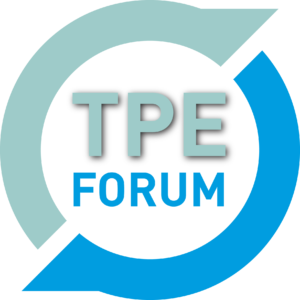With Dipromat, a new player has entered the additive manufacturing market. The basis of the start-up’s business model is the development and marketing of TPE for the AM market, especially in small and medium quantities. The TPEs are marketed under the brand name Diproflex.
Behind Dipromat are two familiar faces and experienced experts in the world of TPEs: Michaela Moriconi (managing director) and Uwe Stenglin, both former members of the PTS Group. In 2016, Stenglin had founded Rotfeld-Consulting as an „innovation laboratory for the plastics industry“. Dipromat GmbH was founded in 2020 as a spin-off from the Rotfeld network. According to the company, Dipromat is the first company that does not rely on materials predetermined by the printer manufacturer, but develops „high-performance thermoplastics“ according to the requirements, which come as close as possible to injection moulding or extrusion materials. The company offers a broad combination of different technologies, ranging from compounding, filament production (with network partners), cryo-milling of thermoplastics to comprehensive testing facilities in its own technical centre. Here, all properties such as compression set, strength, injection moulding behaviour, etc. can be determined and SLS powder assessments carried out.
AM components have the major disadvantage that weld lines in SLS (powder), FFF (filament) and FGM (granulate) have a negative impact on the component properties. As a result, relatively good strengths are already achieved today, but always moderate values in terms of elongation at break and notched impact strength. Dipromat is working on a method to minimise these disadvantages. For filament and pellet printers, the Dipromat team develops, among other things, TPE of all common product families, such as TPS, TPC, TPA, TPO.
The development of machines for SLS (powder), FFF (filaments) and granulate is dynamic. The new start-up has set itself the goal, among others, of further optimising the materials in terms of melt viscosity, mould shrinkage (longitudinal/transverse) and the resulting warpage, adhesion to the plate and weld line strength between the layers or particles. For TPEs in the medium Shore A hardness range, granule printers are of particular interest. The systems described are going into series production in several steps. The ETPs are already at the start. The TPE plant is scheduled to start up in Q1 2021, as is the cryo-milling plant for the production of polymer powder.
Dipromat as well as Rotfeld-Consulting see themselves as network companies that develop the market together in partnership with raw material suppliers, machine manufacturers, processors and end users. Innovative processors with smaller needs, who normally do not have technology access to raw material suppliers, are also to be addressed as customers.
